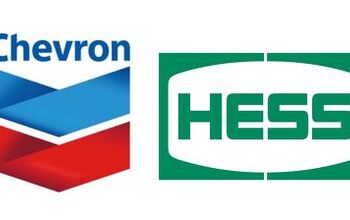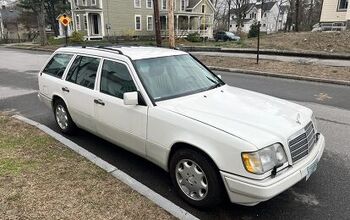Law Review Blasts Toll Road, Parking Meter Privatization
A University of Chicago Law School professor is challenging the prevailing wisdom regarding the sorts of transportation privatization deals that have grown increasingly popular. The Minnesota Law Review last month published a critique by Julie A. Roin that argued such deals have more in common with the medieval practice of tax farming than true privatization. She cited as a primary example Chicago, Illinois Mayor Richard M. Daley’s 2008, lease of the city’s parking meters to Morgan Stanley for 75 years in return for an up-front payment of $1.2 billion.
"The agreement exchanges future public revenues for present public funds, just like debt," Roin explained. "And just like many debt arrangements, the parking meter deal will leave future ratepayers decidedly worse off… Future ratepayers will be doubly disfavored relative to current residents: they will have to pay higher taxes to maintain the same level of services, even as their disposable income is reduced by the extra parking fees mandated by the agreement."
"Many recent privatization deals have been motivated less by the possibility of achieving efficiency advantages than by politicians’ desire to surreptitiously borrow money," Roin wrote. "The upfront payments received by jurisdictions entering into privatization agreements… are, at best, the present value of what would have been future tax (fee) revenue. Rather than true privatization transactions, it is more accurate to describe these deals as loans repayable out of future governmental revenues."
The problem with the debt created by such deals is that they are less flexible and more expensive than conventional forms of debt, such as bonds. They are also significantly less transparent. Traditional debt in the form of publicly traded bonds harnesses market forces to ensure both sides get the best deal possible. Privatization arrangements inherently favor the corporate interest.
quot;Because of the scale of these transactions, relatively few potential buyers exist for any particular deal," Roin wrote. "This leaves opportunities for collusion or simple underpricing at the expense of the selling entity. In Chicago’s parking meter deal, for example, only two bidders vied for the project. Although one can certainly claim that there was a fair public auction of the Chicago parking meter system in that anyone could have entered the auction, the paucity of bidders can also be regarded as a symptom of a defective market, one susceptible to control by insiders or other elites and simply too thin to be trustworthy."
Cities and states also get the worse end of the deal from non-monetary arrangements such a "non-compete" clauses in privatization contracts. These protect private profit at the expense of flexibility in future public policy. Chicago’s deal, for example, guarantees the number of parking spaces and hours of operation that apply 75 years in the future. Roin suggested such deals might be discouraged by limiting the length of contract terms to, for example, no more than five years.
"Robbing Peter to pay Paul accomplishes very little when Peter and Paul are the same individual," Roin observed.
Such a simplistic limitation, however, would likely lead to governments not getting the best deals for certain long-term transactions. Roin suggested better legislation would protect future taxpayers by forcing any such deals to escrow funds equal to the amount of taxes or fees that would have been generated by the leased asset. These funds would be released year-by-year so that the present generation would not be borrowing from a future generation. Roin argued that without some limitation, such deals would grow more intrusive.
"In the not-so-eventual future, jurisdictions may even ‘sell’ the rights to collect property and income taxes to investors alleging better collection techniques and expressing a willingness to accept the risk that future revenues will fall," Roin wrote.
Privatization and the Sale of Tax Revenues (Minnesota Law Review, 7/7/2011)
[Courtesy: Thenewspaper.com]
More by The Newspaper
Latest Car Reviews
Read moreLatest Product Reviews
Read moreRecent Comments
- Analoggrotto Kia Tasman is waiting to offer the value quotient to the discerning consumer and those who have provided healthy loyalty numbers thinks to class winning product such as Telluride, Sorento, Sportage and more. Vehicles like this overpriced third world junker are for people who take out massive loans and pay it down for 84 months while Kia buyers of grand affluence choose shorter lease terms to stay fresh and hip with the latest excellence of HMC.
- SCE to AUX That terrible fuel economy hardly seems worth the premium for the hybrid.Toyota is definitely going upmarket with the new Tacoma; we'll see if they've gone too far for people's wallets.As for the towing capacity - I don't see a meaningful difference between 6800 lbs and 6000 lbs. If you routinely tow that much, you should probably upgrade your vehicle to gain a little margin.As for the Maverick - I doubt it's being cross-shopped with the Tacoma very much. Its closest competitor seems to be the Santa Cruz.
- Rochester Give me the same deal on cars comparable to the new R3, and I'll step up. That little R3 really appeals to me.
- Carson D It will work out exactly the way it did the last time that the UAW organized VW's US manufacturing operations.
- Carson D A friend of mine bought a Cayenne GTS last week. I was amazed how small the back seat is. Did I expect it to offer limousine comfort like a Honda CR-V? I guess not. That it is far more confining and uncomfortable than any 4-door Civic made in the past 18 years was surprising. It reminded me of another friend's Mercedes-Benz CLS550 from a dozen years ago. It seems like a big car, but really it was a 2+2 with the utilitarian appearance of a 4-door sedan. The Cayenne is just an even more utilitarian looking 2+2. I suppose the back seat is bigger than the one in the Porsche my mother drove 30 years ago. The Cayenne's luggage bay is huge, but Porsche's GTs rarely had problems there either.


































Comments
Join the conversation
Selling monopoly rights to parking meters is more akin to a Royal Charter than to 'privatization.' That money should have been returned to property tax payers that paid to have the land bought and developed, not the corrupt Daley Gang who squandered the money instantly. What a crock.
Strange that this is happening in a country that became a country because its people does not want to be unfairly taxed without representation!